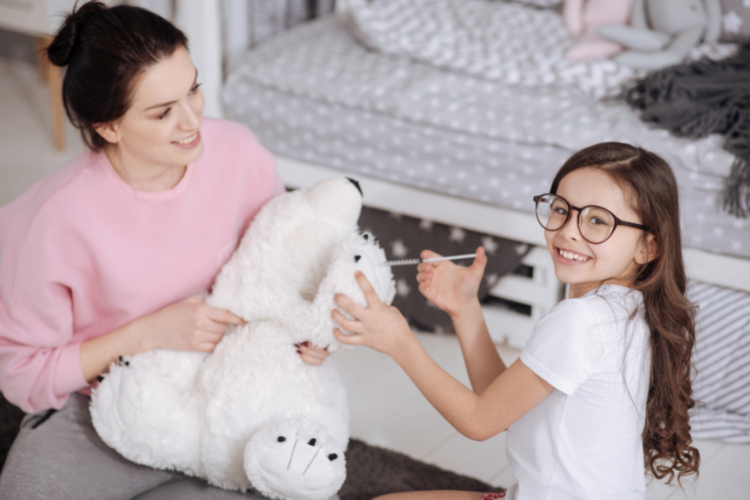Have you ever wondered how simple stuffed animals can play a crucial role in the development of a child’s imagination and emotional health? Plush toys are often the first friends of children. They provide more than just a soft object to cuddle. These are instrumental in fostering creative thinking.
They help children express their emotions in diverse ways. This article explores the benefits of plush companions, like jellycat stuffed animals, and how they contribute to the cognitive and emotional growth of children. These soft toys offer both comfort and a platform for imaginative play. They are invaluable in nurturing a child’s developmental processes.
Fostering Creativity Through Role-Playing
They serve as excellent tools for role-playing, which is vital for cognitive development. Children often imagine these as characters in their stories, which helps them develop language skills and narrative thinking. Role-playing allows children to experiment with different social roles and scenarios, enhancing their ability to understand perspectives and empathy. This imaginative play is not only fun but also a critical part of learning how to navigate social situations.
Emotional Comfort and Security
For many children, it is more than a plaything; it’s a source of comfort and emotional security. During stressful or new situations, a familiar stuffed animal can provide the reassurance a child needs to feel safe. These often become ‘security blankets’ that children carry into unfamiliar environments, helping them manage their anxieties and fears. The soft, huggable nature of these makes them ideal companions for nighttime, making the dark less scary.
Tools for Emotional Expression
Children use them to express their emotions, whether it’s happiness, sadness, or frustration. By projecting their feelings onto these, children learn to cope with different emotions. For instance, a child might pretend to feed a toy to take care of it, mirroring nurturing behaviors they see in adults. This play not only helps children process their feelings but also teaches them empathy and caring for others.
Enhancing Sensory Development
The varied textures of plush toys stimulate a child’s tactile senses, contributing to sensory development. For young children, exploring the soft fur, smooth ribbons, and even the differing weights of stuffed animals can be an early lesson in the physical properties of objects. Such sensory play is crucial for brain development, as it builds neural connections that help with all forms of learning.
Choosing the Right Plush Toy
Selecting the appropriate stuffed animal is crucial for maximizing its benefits. Here are some tips:
- Safety First: Ensure the toy is age-appropriate and has no small parts that could become choking hazards.
- Quality Materials: Choose toys made from durable, non-toxic materials that are easy to clean.
- Interactive Features: Consider toys with additional features like sounds or movable parts to enhance interactive play.
- Personal Connection: Select a toy that resonates with the child’s interests to ensure it becomes a beloved companion.
Plush toys are foundational elements in a child’s play inventory that support both fun and development. They encourage imaginative play, provide emotional support, and help children explore and express their feelings. As simple as they may seem, these toys, like jellycat stuffed animals, play a profound role in nurturing young minds and hearts. When chosen with care, a plush toy can become a cherished member of the family, supporting a child’s growth every step of the way.




